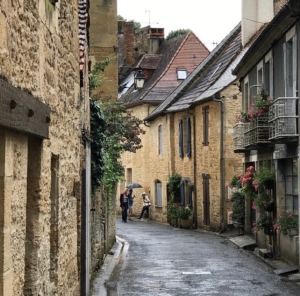 Shep Steiner, a SabbaticalHomes member from Canada, shares his family’s experience and provides helpful tips to guide others through the challenges of preparing for an extended stay in France.
Shep Steiner, a SabbaticalHomes member from Canada, shares his family’s experience and provides helpful tips to guide others through the challenges of preparing for an extended stay in France.
Planning a sabbatical can be complicated and bureaucratic, but if you take it one step at a time, you may find that it’s not as hard as it looks. Read more to find out a few important things to think about.
Related: SabbaticalHomes Listings to Rent and Swap in France
Visas: From Canada to France
For Canadian families going to France, you will need long-stay visas, which you obtain from Toronto. Vancouver is not an option. Paperwork takes time and you will all need visas unless you are EU citizens. You’ll need to book an appointment online. Check the timeline—a year is too early, 1.5 to 2 months in advance is about right.
Some of the issues you may encounter:
- The embassy does not answer questions related to visas over the phone and the website can be confusing: Study visas, “familial or private establishment”, “assumption of official function”, “business”, or “other” all seem like options. In the end, we chose the wrong application and the consulate corrected things at our appointment. In the end, we applied for long-stay visas. We stayed for six months.
- As part of your visa application, you will need proof of financial backing; medical coverage during the period of your stay, etc. A letter of invitation from a host in France will help and specifics are always good, but not necessary. Everyone in your family requires separate visas and everyone needs to go to the visa office.
- You will need a criminal record check and health check from a doctor before you go to the visa office. You will need to bring these documents to the visa office, but faxing this information after the fact also works.
When Living Abroad with School-Age Children
We opted to put our daughter in a French public school, not a private school. Generally, most people including the Provençal Bourgeoisie put their kids in private school, where there are other English-speaking students and enrollment can be expensive. If you want your child to learn the local language, put them in a public school and choose a city other than Paris where the majority of the kids want to speak English.
We moved to Aix-en-Provence, where parents and kids typically prefer to speak French. Using SabbaticalHomes.com, we chose an apartment near a public school so we could walk, not drive, to drop off and pick up when there is always a traffic jam. Being able to walk to school saved us a lot of hassle.
To get your kids into a public school, you will need to show up at the school on or near the first day of instruction. The school principal will tell you to go to the Marie for official paperwork. You should bring your child’s report cards and will need records of all their immunizations. Up to date immunization records are crucial. You will need a Certificate d’Herbegement (rental agreement), phone number, address, and energy bill from the residence where you are staying.
Our daughter was in grade 4 French immersion from Sept-Dec 2017 in Canada, and we enrolled her in CM1 to finish off the year in France. CM1 is the basic equivalent of grade 4. CM2 is the equivalent of grade 5.
Recess and the long French lunch hour will be the most fun for your children, so make sure they are enrolled in the lunch program. The hot food is good – your child’s palate will expand. The cost was about 220 euros for 5.5 months. There are very hefty school breaks (two two week breaks from January to July 15) in France, so plan accordingly. Also, in Aix-en-Provence, the kids had Wednesday afternoons off.
Our daughter thought school in France was “hardcore.” The teacher considered putting her in a grade below, but they brought in another teacher to test her, and it was determined that she should be kept where she was. It would have been ok to go back a grade – our niece was put back a grade when she came to France and it was fine. The crux is not to move them once they have settled in a class as the prospect of making new friends and being sent back after a time can be a blow.
Math instruction is outstanding in France so expect hard homework to keep up. That said, they don’t get written homework. They have to review their lessons and poetry. They also do lots of memory work and are generally introduced to French literature in a way that few high school students in North America are. Public school was a good experience for her that she enjoyed immensely. We recommend you attend a few day trips with the school as this is a good way to break the ice with other French parents. Typically the kids go on one-week ski trips in the winter or on other city adventures with the school, so expect this. Our daughter had swimming lessons and other opportunities.
Banking and Finances when Abroad
We would suggest getting a bank account sooner than later in the city you choose to live in.
Phones when Staying in Another Country
We unlocked our phones before we left and bought new SIM cards. We went month to month at a cost of 20 Euros.
Finding Temporary Housing to Rent or Swap
If possible, select a furnished apartment. Unfurnished apartments often require tenants to obtain arcane French home insurance policies and will generally mean no stove or fridge is provided.
As mentioned, we found our apartment through SabbaticalHomes.com. We also looked at other sites, but they were more expensive. We had a positive experience with SabbaticalHomes.
Related: Finding the Perfect Home in France
Let us know what you think! Connect with us on Twitter, LinkedIn, Facebook, Instagram, YouTube and Pinterest.



This is helpful summary information. I was curious how much effort was involved to find the rental home. Did you have several choices as you were in a larger town?